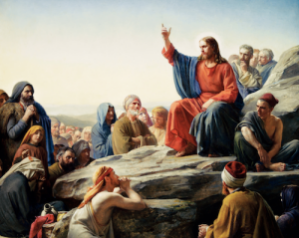On this article we’ll try to answer 2 questions about baptism:
Q1: I had a question about baptism. I was wondering if its true that one must be baptized in order to survive armageddon. Of course I want to be baptized but I would like to know what would happen if I didn’t get the chance?
Q2: I would like someone to explain to me the discussion of baptism last Saturday. Is it precisely the concept expressed in regard to baptism as a requirement for salvation?
That’s a very good question as to whether it is necessary to be baptized in order to survive Armageddon. It might be good to consider what baptism is really about, and why Jehovah requires it.
This is what Insight on the Scriptures, volume 1, pp. 248-249 under Baptism, says about the origin of baptism:
The first human authorized by God to perform water baptism was John the son of Zechariah and Elizabeth. (Lu 1:5-7, 57) The very fact that he was known as “John the Baptist” or “the baptizer” (Mt 3:1; Mr 1:4) implies that baptism or water immersion came to the attention of the people especially through John, and the Scriptures prove that his ministry and baptism came from God; they were not of John’s origin. His works were foretold by the angel Gabriel as from God (Lu 1:13-17), and Zechariah prophesied by holy spirit that John would be a prophet of the Most High to make Jehovah’s ways ready. (Lu 1:68-79) Jesus confirmed that John’s ministry and baptism were from God. (Lu 7:26-28)
We see that it was God who introduced baptism. For what purpose? We can learn the significance and importance of water baptism by what was included in the Law given through Moses, which became “our tutor leading to Christ.” (Galatians 3:24) According to the Law the Levites were cleansed, and also anyone who had become unclean, by spattering “sin-cleansing water” upon them. (Numbers 8:7; Exodus 30:17-21) Insight on the Scriptures, volume 1, page 1084, says:
In Israel a person who … was unclean … was required to undergo a specified cleansing procedure on pain of being “cut off from the midst of the congregation.” In this procedure the ashes of a sound red cow on which no yoke had come were used. Water in which some of these ashes had been mixed was sprinkled on the unclean one. — Numbers 19:1-22
Note what it says in the book of Numbers concerning the law that Jehovah gave his people, of the offering of the red cow “on which no yoke had come,” and which had no physical defects:
The LORD said to Moses and Aaron, “Here is another ritual law required by the LORD: Tell the people of Israel to bring you a red heifer that has no physical defects and has never been yoked to a plow. Give it to Eleazar the priest, and it will be taken outside the camp and slaughtered in his presence. Eleazar will take some of its blood on his finger and sprinkle it seven times toward the front of the Tabernacle. As Eleazar watches, the heifer must be burned--its hide, meat, blood, and dung. Eleazar the priest must then take cedarwood, a hyssop branch, and scarlet thread and throw them into the fire where the heifer is burning. Then the priest must wash his clothes and bathe himself in water. Afterward he may return to the camp, though he will remain ceremonially unclean until evening. The man who burns the animal must also wash his clothes and bathe in water, and he, too, will remain unclean until evening. Then someone who is ceremonially clean will gather up the ashes of the heifer and place them in a purified place outside the camp. They will be kept there for the people of Israel to use in the water for the purification ceremony. This ceremony is performed for the removal of sin. The man who gathers up the ashes of the heifer must also wash his clothes, and he will remain ceremonially unclean until evening. This is a permanent law for the people of Israel and any foreigners who live among them”. —Numbers 19:1-10 (New Living Translation)
This purification ceremony with water, mixed with the ashes of the sacrificial red cow, a sin offering, was, as it says, “for the removal of sin” [“the ceremony to wash away sin”; Contemporary English Version; “the water of cleansing; it is for purification from sin,” New International Version – UK; “The water will be used to make people pure from their sin,” New International Reader’s Version], and it has meaning for us. Note what The Watchtower, April 15, 1984, on page 30, says regarding this:
A valuable link in the record leading to the establishment of God’s Kingdom is provided by the book of Numbers. It also points to Jesus Christ. For instance, the animal sacrifices and use of the red-cow ashes pointed to the far greater provision for cleansing through Jesus’ sacrifice. (Numbers 19:2-9; Hebrews 9:13, 14) (Bold mine)
Further on this, Insight on the Scriptures, volume 1, page 191, says:
According to Numbers chapter 19, a sound red cow without defect and upon which no yoke had come was also slaughtered and burned outside the camp. The ashes of this “sin offering” were deposited in a clean place outside the camp (Nu 19:9) and thus a portion was available for mixing with water to be sprinkled on unclean persons or things to purify them. (Nu 19:17) The apostle Paul referred to the figurative cleansing of the flesh by “the ashes [Gr., spo·dos´] of a heifer” to highlight the far greater cleansing of “consciences from dead works” possible through “the blood of the Christ.” (Hebrews 9:13, 14) (Bold mine)
The scriptures help us to understand the significance and importance of baptism, how “the blood of the Christ,” the sin offering provided by Jehovah, has far greater value in purifying us from our sins when we are baptized than did the “water for the removal of sin,” under the law covenant. Having repented of our sins, baptism symbolizes our being washed or cleansed from them, made possible by “the blood of the Christ.” For that reason we are baptized in the name of Jesus Christ. (Acts 2:38; 10:48) It is upon our baptism that Jehovah forgives us our sins—which grants us a clean conscience—and we are then symbolically dressed in white robes, such as in the case of the “great crowd” in Revelation. (Revelation 7:9, 13,14; 3:4,5; Isaiah 1:16; Ezekiel 16:9) That is why the converted Saul, who became the apostle Paul, was told by Ananias: “And now why are you delaying? Rise, get baptized and wash your sins away by your calling upon his name.” (Acts 22:16)
Under the Law covenant, anyone who refused to comply with the water cleansing regulation was to “be cut off from the midst of the congregation, because it is Jehovah’s sanctuary that he has defiled.” (Numbers 19:20) It is really at the moment of baptism that a person has the benefits of Christ’s ransom applied to him. This was pictured by mixing the ashes of the “sin offering” (the whole red cow, which included the blood) with the sin-cleansing waters. (Numbers 19:5, 9) Anyone unwilling to get baptized fails to benefit from the ransom, and remains unclean in God’s eyes. (1 Peter 3:21)
We might compare baptism to the wedding ceremony, for the marriage is not official, legal, until after the ceremony. When Peter explained to the crowd, that had come running on account of the amazing event that occurred at Pentecost, many of them responded and asked what they needed to do. Peter answered them by saying, “Repent, and let each one of you be baptized in the name of Jesus Christ for forgiveness of your sins, and you will receive the free gift of the holy spirit.” The account says that “those who embraced his word heartily were baptized, and on that day about three thousand souls were added.” You see, a person becomes a member of God’s household upon his baptism. He then receives the holy spirit and is now a son or daughter belonging to Jehovah, having him as his Father. That is also what Jesus meant when telling Nicodemus, “unless anyone is born from water and spirit, he cannot enter into the kingdom of God.” A person cannot receive God’s spirit without baptism. (Acts 2:37-41; John 3:5; 1 Cor. 3:16,17; 2 Cor. 6:18; 1 Tim. 3:15)
We see that baptism is a command from Jehovah. Jesus commissioned his disciples to “go and make disciples of people of all the nations, baptizing them,” and “teaching them to observe all the things I have commanded you.” (Matt. 28:19,20) For that reason, we do not need anyone’s permission to obey that divine directive. To forbid or hinder someone from getting baptized through man-made conditions, restrictions, or qualifications, would be a serious matter, putting oneself in opposition to God. (Acts 5:29, 38,39; Revelation22:18,19) Every elder in his congregation has the responsibility to encourage and help the brothers to obey Jehovah in carrying out all his requirements. It is not his business to want to determine whether or not a person, who wants to get baptized, is ready to do so. (Romans 14:4)
If the elders in your congregation feel that you are not ready for baptism and thus try to discourage you, or even prevent you from doing so, what might you want to do? (Acts 8:36; 10:47; 16:33) In my own case, when I was sixteen years old I got to know Jehovah and came to love him. Therefore I was determined to get baptized. I waited for the upcoming District Convention, took my bathing suit and towel with me and was baptized along with six hundred five others. I had not met with any elders or servants to seek their permission. I felt that this was something very personal between me and Jehovah. From what followed immediately after provided me with evidence that Jehovah had indeed accepted my baptism. I am sure others have done the same, and Jehovah has blessed their obedience. If there is no convention where you might join in with others to get baptized; or it is impossible to get baptized on account of your elders not including your name on their approved list for baptism candidates, then you can keep in mind that any baptized brother is qualified to do baptizing, in any suitable body of water where you can be immersed. (2 Cor. 3:1, 4-6) The Society often likes to remind us that we do not have a clergy class among God’s people; so why should we subject ourselves to fleshly men who themselves do not subject themselves to God? (1 Cor. 3:1-9)
What about a person who wants to get baptized but is unable on account of some physical disability, perhaps being confined to a bed, or even hooked up to a mechanical device that keeps him alive; or even due to a mental inability to understand God’s requirements and therefore being unable to obey. In circumstances where a person truly does not have the ability to obey Jehovah, we can be sure that Jehovah understands. He is the maker of his laws, and it is up to him whether he enforces them or decides to make exceptions. That is not something for us to determine. (Matt. 12:1-5) However, Jesus warned that God will hold accountable and punish the leaders among his people who have made God’s word invalid by their own traditions and doctrines, such as substituting the “sin-cleansing water” with a “water of dedication,” and preventing a person from obeying God accordingly. (Matt. 15:6-9)
The “great crowd” that “comes out of the great tribulation,” are all of them baptized, for they “have washed their robes and made them white in the blood of the Lamb.” (Revelation7:9, 14) There are no other survivors of the great tribulation mentioned in the Scriptures. Don’t allow anyone to hinder you from getting baptized. (1 Peter 3:21)


